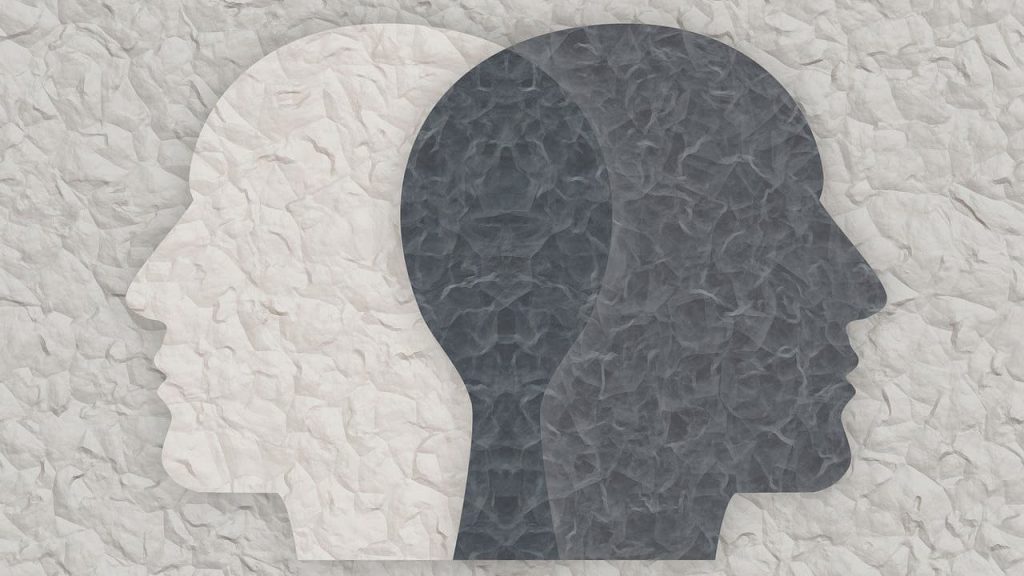Subscribe To Get Latest Updates!


Benefits of Reading
Reading is a simple yet profound activity that has been a part of human civilization for centuries. While it may seem like a basic skill, the benefits of reading extend far beyond the ability to decipher words on a page. In this article, we will delve into the various advantages that reading brings to individuals and society as a whole.
Table of Contents
1. Knowledge Expansion
Reading isn’t just about words on a page; it’s a journey that expands your mind and broadens your understanding of the world. The process of knowledge expansion through reading is a simple yet powerful aspect of the overall benefits that reading offers.
Learning Beyond the Classroom: While school is a great place to learn, reading takes education beyond the classroom. Imagine you’re fascinated by dinosaurs, and your school doesn’t cover them in detail. A trip to the library or a quick search for books on dinosaurs opens up a whole world of information. Suddenly, you’re not just limited to what’s in your textbooks; you’re exploring new facts, discovering different species, and feeding your curiosity.
Exploring New Cultures: Books are like passports to different cultures. Even if you’ve never left your hometown, reading can transport you to far-off lands, introducing you to customs, traditions, and perspectives you might never have encountered otherwise. For instance, reading a novel set in Japan might teach you about tea ceremonies, or a travel book could immerse you in the vibrant markets of India. It’s like having a global adventure from the comfort of your own reading nook.
Understanding Historical Events: History can often seem like a series of dates and facts in a textbook. However, reading historical books or novels set in specific time periods can make history come alive. Instead of just memorizing names and dates, you can understand the experiences of people living through significant events. For instance, a book about World War II might introduce you to the challenges faced by individuals on the home front or soldiers on the battlefield, offering a more personal and relatable view of history.
Grasping Complex Concepts: Some subjects can be tricky to grasp, especially when dealing with complex ideas or scientific theories. Reading books written for different levels of understanding can help break down these concepts into simpler terms. Take, for example, the theory of relativity by Albert Einstein. Reading a simplified explanation in a book written for the general reader can make this complex idea more accessible, allowing you to wrap your head around the concept without needing a physics degree.
Self-Help and Personal Growth: Books aren’t just about acquiring knowledge; they can also be powerful tools for personal development. Let’s say you’re facing challenges in managing stress. A self-help book on stress management can provide practical tips, coping mechanisms, and real-life examples that resonate with your own experiences. Reading about others who have overcome similar struggles can inspire you to apply those lessons in your own life.
Understanding Different Perspectives: In a world filled with diverse opinions and experiences, it’s crucial to understand different perspectives. Reading allows you to step into the shoes of characters from various backgrounds, facing unique challenges. For example, a novel narrated by a character from a different socio-economic background can help you empathize with their struggles, fostering a broader and more inclusive worldview.
Staying Informed: With the constant flow of information in today’s world, staying informed is essential. Reading newspapers, magazines, or online articles keeps you updated on current events, scientific discoveries, and societal changes. Whether it’s understanding the impact of a new technology or staying abreast of global issues, reading helps you navigate the ever-evolving landscape of information.
Cultivating Hobbies and Skills: Have you ever wanted to learn how to cook a particular cuisine or take up a new hobby? Reading books on these subjects provides a wealth of knowledge. From step-by-step guides to insights from experts, books can be your companions in developing new skills and exploring hobbies. For example, a cookbook with clear instructions can turn your kitchen into a culinary playground, allowing you to experiment with new recipes and flavors.
In essence, the benefits of knowledge expansion through reading are like opening doors to countless possibilities. Whether you’re delving into the mysteries of science, immersing yourself in the richness of different cultures, or simply enjoying a good story, each book you read contributes to the vast tapestry of your understanding. So, the next time you pick up a book, remember that you’re not just reading; you’re initiating a journey of knowledge expansion that can shape your understanding of the world in profound ways.
2. Improved Vocabulary
Reading is more than just a way to pass the time; it’s a key to unlocking a treasure trove of words that can enrich your communication skills. The benefits of reading extend beyond the storyline or the information on the page – they delve into the realm of improved vocabulary, a skill that can enhance your ability to express yourself effectively.
Words in Context: When you read, you encounter words in their natural habitat – within sentences and paragraphs. This exposure to words in context helps you understand not only their meanings but also how they are used. For instance, while reading a novel, you might come across the word “pensive” in a sentence like, “She sat by the window, looking pensive.” From the context, you can gather that “pensive” means deep in thought or reflective.
Learning New Words: Books are like a garden of words waiting to be discovered. As you navigate through the pages, you encounter words you might not have come across in everyday conversation. Consider stumbling upon the word “ephemeral” in a science book describing the brief existence of certain insects. Through this encounter, you not only learn a new word but also gain a better understanding of the concept it represents.
Synonyms and Antonyms: Reading exposes you to a variety of synonyms (words with similar meanings) and antonyms (words with opposite meanings). For example, a mystery novel might describe a character as “stoic,” implying a calm and unflinching demeanor. By encountering words like “stoic,” you expand your vocabulary and gain alternatives to express similar ideas.
Nuanced Expression: A robust vocabulary allows you to express yourself with nuance and precision. Instead of relying on generic terms, you can choose words that convey your thoughts more accurately. For instance, instead of saying someone is “angry,” you might opt for “furious” or “irate,” capturing the intensity of the emotion more precisely.
Improving Communication: In everyday conversations, having a well-developed vocabulary enables you to articulate your ideas more clearly. Imagine discussing a movie with friends and being able to convey your opinions with specific words like “captivating,” “compelling,” or “mediocre.” Your ability to express yourself effectively enhances the quality of your communication.
Academic and Professional Advantages: A strong vocabulary is an asset in academic and professional settings. Whether you’re writing an essay, participating in a discussion, or crafting a report, an extensive vocabulary allows you to communicate your thoughts persuasively and professionally. Employers often value employees who can articulate ideas with clarity and precision.
Reading and Vocabulary Acquisition: The more you read, the more words you encounter, and the more words you encounter, the richer your vocabulary becomes. It’s a cyclical process that feeds into itself. Consider reading as a daily workout for your vocabulary, gradually strengthening it with each page turned and each new word absorbed.
Lifelong Learning: Your vocabulary is not a static entity but a dynamic aspect of your language skills that can continue to evolve throughout your life. Reading regularly, even beyond your formal education, ensures that you encounter new words and ideas, contributing to a lifelong journey of learning and linguistic growth.
In essence, the improved vocabulary gained through reading is a practical and valuable skill that goes beyond impressing others with big words. It’s about equipping yourself with the tools to express your thoughts accurately, engage in meaningful conversations, and navigate the complexities of language with confidence. So, the next time you dive into a book, remember that you’re not just enjoying a story; you’re also enriching your vocabulary, one word at a time.
3. Enhanced Focus and Concentration
In a world buzzing with distractions, the simple act of reading offers a gateway to improved focus and concentration. Beyond the enjoyment of a good story, the benefits of reading extend to the realm of mental discipline, providing a tranquil space for the mind to engage and concentrate.
The Calming Effect of Reading: Imagine settling into a comfortable chair with a book in hand. As you immerse yourself in the narrative, the outside world fades away, and your mind finds a serene focus. The act of reading, with its quiet rhythm, helps create a calm mental space, allowing you to escape the constant bombardment of notifications and external stimuli.
Immersion in a Book: When you delve into a captivating story, whether it’s a thrilling mystery or a heartwarming novel, your mind becomes engrossed in the narrative. This immersive experience demands your full attention, fostering a state of concentration that is free from the disruptions of the surrounding environment. As you navigate the pages, you enter a focused mental flow, absorbed in the world the author has created.
Training the Mind’s Eye: Reading involves visualizing scenes, characters, and settings based on the words on the page. This mental imagery serves as a form of exercise for your mind’s eye, training it to focus and create detailed pictures. As you follow the protagonist through a dense forest or visualize the layout of a detective’s office, your concentration sharpens, and your ability to sustain focus improves.
Escaping the Multitasking Trap: In a world that often glorifies multitasking, reading stands as a counterbalance. When you read, you engage in a singular activity, allowing your mind to concentrate on the unfolding story or information. This respite from juggling multiple tasks not only enhances your focus during reading but also reinforces the ability to focus on one task at a time in other aspects of your life.
Resisting the Pull of Digital Distractions: With smartphones and constant connectivity, maintaining focus has become a challenge. Reading a physical book provides a welcome escape from screens and notifications. Unlike digital devices, a book doesn’t beep, buzz, or flash notifications at you, allowing for an uninterrupted reading experience that nurtures concentration.
Extending the Benefits Beyond Reading: The improved focus cultivated during reading isn’t confined to the time spent with a book. The mental discipline developed through sustained reading can carry over to other areas of your life. Whether it’s completing a work task, solving a puzzle, or engaging in a hobby, the enhanced focus becomes a valuable skill that extends beyond the pages of a book.
The Pleasure of Undivided Attention: In a world filled with constant demands for attention, reading provides an opportunity to give your undivided focus to a single activity. Whether you’re sitting in a quiet corner of a library or enjoying a book in a bustling cafe, the act of reading allows you to channel your attention into the pages before you, creating a peaceful haven for concentration.
Enhancing Cognitive Control: Reading requires cognitive control, the ability to direct your attention, filter out distractions, and manage your cognitive resources effectively. As you navigate complex plots or absorb intricate details, your cognitive control is put to the test and strengthened. This improvement in cognitive control can positively impact various aspects of your life, from problem-solving to decision-making.
In conclusion, the enhanced focus and concentration achieved through reading are quiet yet powerful benefits. By embracing the simplicity of a book, you not only escape into different worlds but also refine your ability to concentrate, offering a respite from the chaos of the modern world. So, the next time you pick up a book, savor the focused moments it brings, knowing that in that quiet act of reading, you’re nurturing a valuable skill that can extend into the fabric of your daily life.
4. Stress Reduction

In the midst of life’s hustle and bustle, finding moments of peace and calm is a precious gift. Reading, beyond being a source of information or entertainment, emerges as a quiet ally in the journey towards stress reduction. Let’s explore how the simple act of reading can be a balm for the weary mind.
A Pause from the Daily Grind: Picture yourself in a cozy nook, book in hand, escaping the demands of the day. This mental retreat into a different world provides a welcome pause, allowing your mind to step away from the stresses of work, responsibilities, and the constant hum of daily life.
Immersion in Another World: When you immerse yourself in a good book, you’re transported to a different realm. Whether it’s a fantasy land, a historical setting, or a cozy small town, the act of reading lets you temporarily detach from your own worries and become engrossed in the characters and events unfolding on the pages.
Mindful Distraction: Reading serves as a form of mindful distraction. Instead of dwelling on sources of stress, you redirect your focus to the narrative before you. This shift in attention allows your mind to take a break from the incessant worries and demands, providing a mental respite that contributes to stress reduction.
Lowering Stress Hormones: Research suggests that engaging in a calming activity, such as reading, can lead to a decrease in stress hormones like cortisol. As you turn the pages, your body responds to the relaxation, creating a physiological shift that helps alleviate the tension accumulated throughout the day.
Unwinding Before Bed: In our fast-paced world, winding down before bedtime can be a challenge. However, engaging in the soothing ritual of reading can signal to your body that it’s time to relax. The act of reading, particularly from a physical book, without the glow of screens, contributes to a calm pre-sleep routine, promoting a more restful night.
Escaping the Digital Overload: Constant exposure to screens, notifications, and digital stimuli can contribute to heightened stress levels. Reading a physical book offers a welcome break from the digital overload, allowing your eyes to rest and your mind to recalibrate without the constant buzz of electronic devices.
Fostering Emotional Resilience: When you connect with characters facing challenges or triumphs in a book, it provides a safe space for emotional exploration. This emotional engagement can contribute to fostering resilience, helping you navigate your own emotions and stressors with a greater sense of understanding and perspective.
A Personal Retreat: Even in the midst of a busy day, carving out a few moments to read becomes a personal retreat. Whether it’s during a lunch break, while waiting for an appointment, or just before bedtime, these small pockets of reading time offer a mini escape that can significantly contribute to stress reduction.
Cultivating a Healthy Habit: Incorporating reading into your routine establishes a healthy habit that encourages relaxation. Instead of reaching for a digital device, consider keeping a book nearby. The act of consciously choosing to engage with a book provides a mindful break, fostering a sense of control over your leisure time.
In essence, the stress reduction achieved through reading is a subtle yet profound benefit. It’s not about escaping reality but creating a space to recharge, allowing your mind to find solace in the pages of a good book. So, the next time you feel the weight of stress, consider reaching for a book – a simple, quiet companion on the journey towards a calmer, more centered self.
5. Cognitive Stimulation
Reading is not just a pleasurable pastime; it’s a workout for your brain. The benefits of reading extend beyond the enjoyment of a good story to the realm of cognitive stimulation. Let’s explore how engaging with books can be a gentle yet effective exercise for your mental muscles.
Sharpening Critical Thinking: When you read, you encounter different perspectives, complex plots, and varied ideas. This exposure to diverse content stimulates critical thinking. For example, when you read a mystery novel, you might find yourself piecing together clues, predicting outcomes, and considering various possibilities. This mental activity sharpens your ability to analyze information and make informed decisions.
Problem-Solving in Action: Imagine you’re reading a detective story where the protagonist faces a perplexing mystery. As you follow their journey, your brain is subtly engaged in solving the puzzle alongside them. This constant mental challenge nurtures problem-solving skills, teaching your mind to approach issues with creativity and analytical thinking.
Enhanced Memory Function: Reading involves remembering characters, plot details, and key events. Your brain creates a mental map of the story, and as you progress through the book, you build and reinforce these memory connections. This constant exercise in memory retention contributes to enhanced memory function, which can be beneficial in various aspects of your life.
Vocabulary Expansion as Mental Exercise: Every new word encountered while reading is like a mental push-up for your vocabulary. Consider stumbling upon the word “ephemeral” in a nature book describing the brief existence of certain flowers. Learning and incorporating such words into your mental lexicon is a cognitive exercise that expands your linguistic capabilities.
Attention to Detail: Many books require attention to detail to fully grasp the nuances of the plot or understand the motivations of the characters. As you pay close attention to the subtleties within the narrative, you’re honing your ability to observe and interpret details—a skill that can prove valuable in various real-life scenarios.
Improved Concentration Skills: Engaging with a book demands sustained attention and concentration. Unlike the quick flicker of attention often required in today’s fast-paced digital world, reading encourages a more prolonged focus. This exercise in concentration contributes to the improvement of your overall attention span, a skill that can be beneficial in academic, professional, and personal settings.
Mental Gymnastics through Genre Exploration: Exploring different genres offers a variety of mental challenges. Reading a historical novel may require you to understand the cultural context of a particular era, while delving into a science fiction story may involve grasping complex futuristic concepts. This genre-based mental gymnastics keeps your brain agile and adaptable.
Imaginative Flexibility: Entering different fictional worlds and scenarios fosters imaginative flexibility. When you picture characters, settings, and events described in a book, your mind engages in a form of mental gymnastics, flexing its creative muscles. This imaginative exercise contributes to a more flexible and open-minded approach to problem-solving in the real world.
In conclusion, the cognitive stimulation gained through reading is a subtle yet impactful benefit. It’s not just about enjoying a story; it’s about providing your brain with a rich and varied workout. So, the next time you open a book, savor the mental exercise it offers—a gentle but effective way to keep your cognitive abilities in top shape.
6. Improved Empathy

Beyond the pages and paragraphs, reading opens a doorway to a profound yet simple benefit: improved empathy. Let’s explore how the act of reading can enhance your understanding of others and cultivate a more compassionate worldview.
Walking in Someone Else’s Shoes: When you immerse yourself in a book, you step into the shoes of the characters. Consider a novel where the protagonist faces challenges stemming from their cultural background. As you follow their journey, you begin to empathize with their struggles, gaining insights into experiences different from your own.
Experiencing Diverse Perspectives: Books offer a window into worlds you might not encounter in your everyday life. Whether it’s a novel set in a different era, a story told from the perspective of a person from another country, or a narrative exploring unique life circumstances, reading broadens your horizons and exposes you to diverse perspectives. This exposure fosters empathy by helping you understand and appreciate the varied challenges others may face.
Emotional Connection to Characters: Engaging with the emotions of characters in a book is a form of emotional exercise. When a character experiences joy, sorrow, or triumph, your own emotions are subtly engaged. This emotional connection contributes to a deeper understanding of human emotions and a heightened sense of empathy towards the fictional characters and, by extension, people in the real world.
Recognizing Shared Humanity: No matter the setting or time period, literature often highlights the common threads that bind us as humans. Whether it’s love, loss, friendship, or the pursuit of happiness, recognizing these shared aspects of the human experience fosters a sense of connection. This recognition forms the basis for improved empathy, as you realize that, despite differences, we are all navigating the intricate tapestry of life.
Empathy for Real-World Issues: Books addressing real-world issues can evoke a powerful empathetic response. Imagine reading a memoir that recounts personal experiences with social injustice. As you absorb the author’s perspectives and challenges, your empathy is awakened, prompting a deeper understanding of the realities faced by individuals affected by such issues.
Learning from Character Relationships: The relationships between characters in a story can offer valuable lessons in empathy. Whether it’s the bonds of friendship, familial ties, or romantic connections, observing how characters navigate their relationships provides insights into the complexities of human connections. These lessons can translate into a heightened sensitivity towards the dynamics of relationships in your own life.
Encouraging Open-Mindedness: Exploring different cultures, belief systems, and lifestyles through literature encourages open-mindedness. Reading exposes you to the richness of diversity, challenging preconceived notions and fostering a more open and accepting attitude towards people with different backgrounds and perspectives.
Empathy as a Skill: Just like any skill, empathy can be honed through practice. Reading regularly provides a consistent exercise in understanding the emotions and experiences of others. Over time, this practice contributes to the development of empathy as a skill, making you more attuned to the feelings and perspectives of those around you.
In conclusion, the improved empathy gained through reading is a subtle yet transformative benefit. It’s about weaving the threads of understanding, compassion, and connection through the simple act of engaging with books. So, the next time you pick up a novel or delve into a story, appreciate the empathetic journey it offers—a journey that quietly shapes a more compassionate and understanding view of the world.
7. Better Sleep
In the quiet hours before bedtime, the simple act of reading holds a unique power – the ability to contribute to better sleep. Let’s explore how embracing a book before bedtime can become a soothing ritual, paving the way for a more restful night.
Unplugging from Screens: In our tech-filled world, the glow of screens can interfere with our natural sleep-wake cycle. Reading a physical book, as opposed to scrolling through a smartphone or tablet, allows you to unplug from electronic devices. This break from screens signals to your brain that it’s time to wind down, promoting a more peaceful transition into sleep.
Creating a Relaxing Routine: Establishing a calming bedtime routine is key to preparing your body and mind for sleep. Reading can be an integral part of this routine. Consider dedicating the last 15-30 minutes of your evening to reading a book. This consistent ritual can serve as a gentle cue to your body that it’s time to relax and shift into sleep mode.
Calming the Mind: The mental escape provided by reading can be a valuable tool for calming a busy mind. If your thoughts tend to race as you lie in bed, a good book can offer a distraction, redirecting your focus from daily worries to the unfolding narrative. This mental diversion can create a serene mental space conducive to sleep.
Escaping into Fiction: Engaging with a fictional story can be particularly effective in promoting better sleep. As you enter the world of characters and plots, you momentarily step away from the stresses of reality. This mental escape aids in detaching from the day’s challenges, allowing your mind to drift into a more relaxed state.
Reducing Stress Hormones: The physiological benefits of reading extend to the reduction of stress hormones. Research suggests that engaging in a calming activity, such as reading, can lead to a decrease in stress hormones like cortisol. Lowering these hormones contributes to a more tranquil and stress-free state, creating favorable conditions for quality sleep.
Bedtime Ritual for All Ages: The benefits of bedtime reading aren’t exclusive to adults. For children, reading before bedtime is a well-known and effective sleep aid. The familiar routine of a bedtime story provides comfort and signals that it’s time to settle down, fostering healthy sleep habits from a young age.
Stepping Away from Information Overload: In the age of constant information, our minds can be in overdrive, even when it’s time to sleep. Reading a book allows you to step away from the information overload of the day. Unlike news updates or social media, a book provides a controlled and calming flow of information, aiding in the gradual winding down of mental activity.
Enhancing Sleep Quality: Quality sleep is not just about the quantity of hours spent in bed; it’s also about the depth and restorative nature of sleep. Reading before bedtime contributes to a more relaxed state, setting the stage for deeper sleep cycles. This enhanced sleep quality leaves you feeling more refreshed and rejuvenated upon waking.
In conclusion, the connection between reading and better sleep is a simple yet powerful one. It’s about creating a space for tranquility and mental relaxation in the moments leading up to bedtime. So, the next time you find yourself reaching for a book before turning off the lights, know that you’re not just escaping into a story – you’re nurturing the conditions for a night of peaceful and rejuvenating sleep.
8. Mental Stimulation for Seniors
As the pages of life turn, the habit of reading remains a timeless and beneficial companion, especially for seniors. Beyond the joy of a good story, the act of reading offers valuable mental stimulation, contributing to cognitive well-being. Let’s explore how the simple pleasure of reading can be a gentle exercise for the minds of seniors.
Keeping the Mind Active: Just as physical exercise is essential for the body, mental exercise is crucial for the mind, especially as we age. Reading regularly serves as a form of mental stimulation, keeping the brain engaged and active. Whether it’s a captivating novel or an informative non-fiction book, each page turned becomes a small workout for the brain.
Exploring New Ideas: The world of books is a vast landscape of ideas waiting to be explored. For seniors, this exploration provides a continuous source of mental stimulation. Whether delving into history, science, or fiction, each book presents an opportunity to encounter new concepts, fostering a lifelong journey of learning.
Memory Boost: Reading involves remembering characters, plot details, and other elements of the narrative. This cognitive effort contributes to memory retention, a factor that becomes increasingly important as we age. Engaging with the details of a story provides a subtle yet effective workout for memory function.
Cognitive Flexibility: Reading different genres and styles challenges the mind’s flexibility. For seniors, this is particularly beneficial as it encourages the brain to adapt to various writing styles, tones, and narrative structures. This cognitive flexibility is a valuable asset in maintaining mental agility.
Problem-Solving Engagement: Whether following a detective solving a mystery or navigating a character through life’s challenges, books often involve problem-solving. Seniors can benefit from the mental engagement required to understand and solve fictional problems, contributing to the maintenance of their cognitive abilities.
Reducing Cognitive Decline: Studies suggest that engaging in mentally stimulating activities, such as reading, may contribute to a lower risk of cognitive decline in seniors. The continuous mental exercise provided by reading becomes a protective factor, supporting cognitive health as individuals age.
Social Connection through Book Clubs: Participating in book clubs or reading groups offers seniors a social dimension to their reading habits. Discussing books with peers not only provides mental stimulation but also fosters social connections, contributing to overall well-being.
Enjoying Timeless Classics: Reading doesn’t require keeping up with the latest trends. Seniors can enjoy the classics they may have missed or revisit old favorites. Whether it’s the works of Shakespeare, timeless novels, or historical accounts, these classics provide a rich source of mental stimulation.
Personalized Pace of Learning: One of the benefits of reading for seniors is the ability to learn at their own pace. Unlike formal education settings, reading allows individuals to absorb information and ideas at a comfortable rate, catering to their unique cognitive needs and preferences.
In conclusion, the mental stimulation provided by reading is a gentle and enjoyable exercise for seniors. It’s about fostering cognitive well-being, maintaining memory function, and embracing the joy of lifelong learning. So, the next time a senior reaches for a book, recognize that they are not just reading; they are engaging in a timeless activity that nurtures their minds and contributes to a fulfilling and intellectually active life.
9. Cost-Effective Entertainment
In a world where entertainment options often come with a price tag, the simple pleasure of reading stands out as a cost-effective and enriching alternative. Let’s explore how picking up a book can offer an affordable escape and a world of enjoyment without breaking the bank.
Accessible Libraries: One of the most cost-effective ways to indulge in reading is through public libraries. These community hubs offer a treasure trove of books across genres, allowing readers to borrow and enjoy a wide array of titles without spending a dime. Libraries make the joy of reading accessible to all, regardless of financial constraints.
Affordable E-Books: In the digital age, e-books provide a convenient and often budget-friendly option. Many e-books are available at a fraction of the cost of their print counterparts, and some platforms even offer free or discounted e-books regularly. With e-readers or smartphone apps, readers can carry an entire library in their pocket without breaking the bank.
Secondhand Bookstores: Exploring the shelves of secondhand bookstores can be a delightful and economical way to discover hidden literary gems. These stores often offer well-loved books at significantly reduced prices, allowing readers to build their personal libraries without a hefty price tag.
Community Book Swaps: Organizing or participating in community book swaps is a cost-effective way to refresh your reading collection. These events allow individuals to exchange books they’ve already enjoyed for new ones, creating a cycle of shared and affordable entertainment within the community.
Online Reading Platforms: Various online platforms provide access to a vast collection of free and legally available literature. Project Gutenberg, for example, offers a diverse selection of classic literature that can be downloaded at no cost. These platforms enable readers to explore a wide range of genres without spending a penny.
Reading Subscriptions: For avid readers, subscription services like Kindle Unlimited or Audible can offer a cost-effective way to access a broad selection of e-books and audiobooks. These subscriptions often come with a monthly fee that grants unlimited access to a vast library of titles, making it an economical option for those who consume books regularly.
Long-Lasting Entertainment: Unlike some forms of entertainment that provide fleeting moments of enjoyment, a good book can offer hours of immersive entertainment. The investment in a single book can translate into days or even weeks of reading pleasure, making it a cost-effective form of entertainment when considering the value per hour spent.
Budget-Friendly Reading Nooks: Creating a cozy reading nook doesn’t have to be an expensive endeavor. A comfortable chair, a blanket, and good lighting are often all it takes to set up an inviting reading space. Readers can transform a corner of their home into a budget-friendly haven for literary escapes.
In conclusion, the cost-effective entertainment of reading extends beyond the pages of a book. It’s about embracing affordable avenues, from public libraries to secondhand bookstores, that make the world of literature accessible to everyone. So, the next time you seek entertainment without breaking the bank, consider the simple and enriching escape that comes from opening the pages of a good book.
10. Lifelong Learning
In the journey of life, the habit of reading serves as a reliable companion, offering a pathway to continuous learning. Beyond the classroom, the pages of books become portals to new knowledge and experiences, fostering a spirit of lifelong learning. Let’s explore how the simple act of reading contributes to a lifetime of intellectual growth.
Expanding Horizons: Books act as windows to the world, allowing readers to explore realms beyond their immediate surroundings. Whether delving into historical accounts, scientific discoveries, or cultural perspectives, each book opens a new window, expanding horizons and nurturing a curiosity that lasts a lifetime.
Staying Informed: In a rapidly changing world, staying informed is crucial. Reading newspapers, magazines, or online articles provides a continuous flow of current information. This habit not only keeps individuals updated on global events but also cultivates an awareness of diverse topics and issues.
Learning from Different Perspectives: Books offer a diverse array of voices and perspectives. For example, a memoir written by someone from a different background provides insights into their experiences. Learning from these varied perspectives fosters empathy and a deeper understanding of the complexities of the world.
Acquiring Practical Skills: Beyond theoretical knowledge, books often contain practical guidance on various skills. Whether it’s learning to cook, mastering a new hobby, or acquiring self-help strategies, the pages of books serve as valuable guides for acquiring practical skills that enhance daily life.
Diving into Educational Genres: The educational genre includes a wealth of books designed to impart knowledge on specific subjects. From language learning guides to textbooks on scientific principles, these educational resources cater to readers of all ages, facilitating self-paced learning on a wide range of topics.
Stoking the Curiosity Flame: Children’s books play a pivotal role in sparking and sustaining curiosity. As young minds explore the adventures of characters, learn about the world, and embrace imaginative tales, they develop a lifelong love for learning. This early curiosity often evolves into a habit of seeking knowledge throughout adulthood.
Adapting to Technological Advancements: In the digital age, books continue to evolve alongside technology. E-books, audiobooks, and online platforms provide convenient and accessible avenues for learning. Embracing these technological advancements allows individuals to integrate reading seamlessly into their daily lives.
Pursuing Personal Interests: Whether it’s a fascination with astronomy, a passion for history, or an interest in gardening, books cater to diverse interests. Reading enables individuals to pursue and deepen their understanding of subjects that personally resonate with them, transforming leisure time into a journey of lifelong learning.
Embracing Non-Fiction and Fiction Alike: Lifelong learning isn’t confined to non-fiction alone. Fictional works also contribute to intellectual growth by offering insights into human nature, societal dynamics, and emotional landscapes. A well-crafted novel can provide valuable lessons and reflections on life.
In conclusion, the pursuit of lifelong learning through reading is a simple yet profound journey. It’s about embracing the ever-open book of life, turning its pages to discover new ideas, perspectives, and skills. So, the next time you pick up a book, know that you’re not just reading; you’re embarking on a lifelong adventure of learning and growth.
11. Improved Writing Skills

In the world of words, the journey of becoming a better writer often begins with the simple act of reading. Beyond the joy of stories, reading plays a crucial role in shaping and refining writing skills. Let’s explore how immersing yourself in books can pave the way for improved writing.
Absorbing Language Patterns: When you read, you expose yourself to various writing styles and language patterns. Whether it’s the poetic prose of a classic novel or the concise language of a non-fiction piece, each book becomes a teacher, subtly imparting the nuances of language and sentence structure.
Expanding Vocabulary: A rich vocabulary is a valuable asset for any writer. Reading exposes you to a diverse range of words, helping you expand your lexical toolkit. As you encounter new words in context, they become part of your mental vocabulary, ready to be utilized in your own writing endeavors.
Understanding Narrative Flow: The art of storytelling involves maintaining a smooth and engaging narrative flow. Reading novels, short stories, and other narrative forms provides an immersive experience in understanding how authors structure and pace their storytelling. This exposure contributes to your ability to create compelling narratives.
Grasping Effective Communication: Effective writing is rooted in clear and concise communication. Reading teaches you how to convey ideas, describe scenes, and express emotions with precision. By observing how authors effectively communicate, you enhance your own skills in articulating thoughts and concepts.
Learning from Diverse Genres: Different genres require distinct writing approaches. Whether it’s the descriptive language of a travelogue, the technical precision of a scientific article, or the emotional depth of a novel, each genre presents unique writing challenges. Reading across genres equips you with a versatile set of writing skills applicable to various contexts.
Internalizing Grammar Rules: Correct grammar is the backbone of effective writing. By reading well-written books, you internalize grammatical rules without the need for formal study. Exposure to grammatically sound sentences reinforces proper language usage, contributing to your ability to write with clarity and accuracy.
Embracing Writing Styles: Writers often develop their own distinctive styles, influenced by their reading experiences. As you explore different authors and genres, you unconsciously absorb elements of their styles. This eclectic exposure allows you to experiment with various writing approaches, eventually finding your unique voice.
Gaining Inspiration from Literary Techniques: Literature is a treasure trove of literary techniques. From symbolism and foreshadowing to dialogue and character development, reading exposes you to a myriad of techniques used by skilled authors. Integrating these techniques into your writing toolbox enhances the depth and sophistication of your work.
Reinforcing the Importance of Editing: Well-edited books demonstrate the significance of the editing process in refining written content. Reading teaches you to appreciate the value of revising and polishing your writing. It instills the habit of revisiting and refining your work to ensure clarity and coherence.
In conclusion, the journey to becoming a proficient writer often starts with the simple act of reading. It’s about absorbing the intricacies of language, understanding diverse writing styles, and internalizing the principles of effective communication. So, the next time you open a book, recognize that you’re not just reading for pleasure; you’re investing in the refinement of your own writing skills.
12. Development of Critical Thinking
Beyond the enjoyment of stories, reading is a powerful ally in the cultivation of critical thinking. This essential skill involves analyzing information, making reasoned judgments, and approaching ideas with a discerning mind. Let’s explore how the simple act of reading can be a catalyst for the development of critical thinking.
Questioning and Analyzing: When you read, you engage with the content by questioning and analyzing. Consider a news article reporting on a current event. A critical reader doesn’t just accept the information; they question its source, analyze potential biases, and consider alternative viewpoints. This habit of questioning and analyzing fosters a thoughtful approach to information.
Evaluating Arguments: Books often present characters with conflicting perspectives, or non-fiction works may explore opposing arguments. As a reader, you are prompted to evaluate these arguments, considering the evidence and logic presented. This process of evaluating differing viewpoints hones your ability to discern strong arguments from weak ones.
Connecting Ideas: Reading involves connecting ideas within a narrative or across various pieces of information. For example, in a mystery novel, you may connect clues to unravel the plot. This skill of connecting disparate pieces of information contributes to the development of a holistic understanding and fosters a nuanced approach to problem-solving.
Identifying Themes and Patterns: Books often revolve around themes or recurring patterns. Whether it’s the exploration of human nature in literature or the identification of trends in non-fiction, recognizing themes and patterns requires a level of critical thinking. This ability to discern underlying themes contributes to a deeper comprehension of the material.
Forming Informed Opinions: Critical thinking involves forming opinions based on evidence and thoughtful consideration. Reading exposes you to various perspectives, allowing you to weigh different viewpoints before forming your own opinions. This practice of informed opinion formation is a key aspect of critical thinking.
Predicting Outcomes: In fiction, readers often find themselves predicting the outcome of the story based on the events and characters’ actions. This predictive thinking is a form of hypothesis testing, where you analyze information to anticipate possible outcomes. This skill extends beyond literature, aiding in decision-making in real-world scenarios.
Challenging Assumptions: Books, particularly those that challenge societal norms or present unconventional ideas, encourage readers to challenge their own assumptions. For instance, a science fiction novel exploring alternative social structures may prompt you to question ingrained beliefs. This willingness to challenge assumptions is a cornerstone of critical thinking.
Reflecting on Personal Beliefs: Engaging with diverse perspectives in literature prompts self-reflection. As you encounter characters with different beliefs or navigate complex ethical dilemmas in stories, you are prompted to reflect on your own values and beliefs. This introspective aspect of reading contributes to the development of critical self-awareness.
Applying Knowledge to Real-Life Situations: Critical thinking goes beyond the pages of a book and finds application in real-life situations. Whether it’s making decisions at work, navigating relationships, or addressing societal issues, the critical thinking skills honed through reading become valuable tools for approaching challenges with a discerning mind.
In conclusion, the development of critical thinking through reading is a subtle yet profound benefit. It’s about more than just absorbing information; it’s about engaging with content thoughtfully, questioning assumptions, and cultivating a discerning approach to the world. So, the next time you dive into a book, recognize that you’re not just reading; you’re nurturing the thinking reader within you.
13. Conclusion
In the quiet companionship of books, a world of benefits unfolds. Reading, a simple act, offers a myriad of advantages that extend beyond the joy of stories. From the gentle exercise of the mind to the expansion of knowledge and the fostering of critical thinking, the benefits of reading are both subtle and profound.
Through books, we embark on journeys of imagination, nurture empathy, and find solace in the words of others. The pages of a book become pathways to improved vocabulary, enhanced focus, and the tranquility of better sleep. It is a cost-effective form of entertainment, a lifelong pursuit of learning, and a gentle exercise for the minds of all ages.
In the world of letters, we discover not only the magic of storytelling but also the magic of personal growth. Reading is a timeless companion, offering us the gifts of knowledge, empathy, and a deeper understanding of ourselves and the world. So, whether turning the pages of a novel, exploring the realms of non-fiction, or savoring the verses of poetry, let the benefits of reading be a gentle and constant presence in your life, enriching your mind and nourishing your soul.
Share This Article
Subscribe to Get Latest Updates!

Wisdom Database

At Wisdom Database, we believe that learning can be an exciting adventure. Explore our blog articles, test your knowledge with our quizzes, and join us on a learning journey that’s both enriching and entertaining. Get ready to unlock a world of knowledge in a fun and interactive way!
Follow us on social media
Featured Quizzes
- All Posts
- Critical Thinking
- Memorization
- Reading








